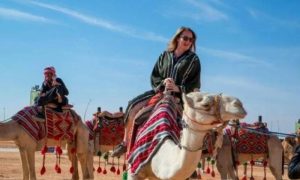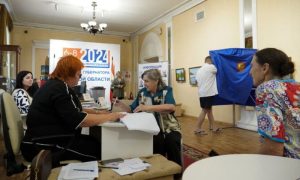JUBA, SOUTH SUDAN: John Wulu serves as the manager and chief editor at Top FM, a prominent radio station situated in the heart of Juba, South Sudan’s capital. In this challenging environment, journalists who aim to shed light on corruption often encounter intimidation and threatening phone calls from unidentified individuals.
Wulu highlighted the uphill battle faced by most media houses in the country, grappling with the trifecta of restricted access, censorship, and harassment, sometimes orchestrated by South Sudan’s security operatives. He underscored that reporting on security matters and corruption is considered a red line, crossing which jeopardizes the safety of journalists.
Female journalists face even greater risks, enduring gender-based violence and encountering perilous situations during certain assignments. Wulu emphasized that these dangers have led some journalists, particularly females, to abandon the profession altogether.
Josephine Achiro, the executive director for Community Media Network South Sudan, expressed concern over the chilling effect the lack of press freedoms has had on journalism. She noted that censorship and harassment have compelled many journalists to self-censor and adopt less contentious angles in their stories to avoid conflicts with the authorities.
A former reporter from The City Review, Keji Janefer Silver, shared her experience of being detained by security operatives in Juba alongside eight other journalists. The incident occurred after they covered a briefing by opposition politicians in parliament. She stressed the need for resilience, creativity, and endurance to navigate the challenging media landscape in South Sudan.
Anne Ayada, a reporter with Mingkaman FM, a community-based radio station in Lakes State’s Awerial County, discussed the additional challenges faced by female journalists in obtaining on-the-record sources compared to their male counterparts. Ayada advocated for freedom for journalists to express themselves and cover stories without fear of repercussions, emphasizing the importance of equal opportunities for women in journalism.
South Sudan’s Deputy Minister of Information, Communication Technology, and Postal Services, Jacob Maiju Baba Korok, expressed a contrasting view, stating that the media environment in the country is conducive, despite a few isolated incidents of arrests and intimidation.
However, the media watchdog Reporters Without Borders (RSF) provided a sobering perspective, citing at least nine journalists killed in South Sudan since 2014. RSF highlighted the routine blocking of media outlets from covering conflict-related issues and the prevalent harassment, arbitrary detention, and intimidation faced by journalists in the country.























